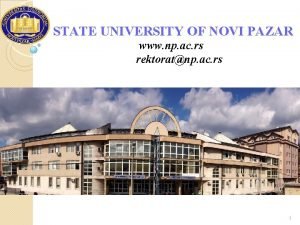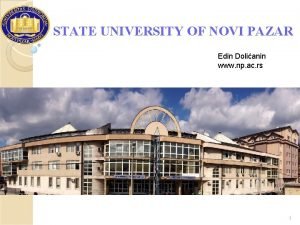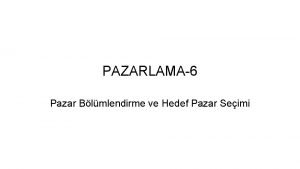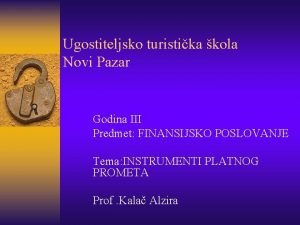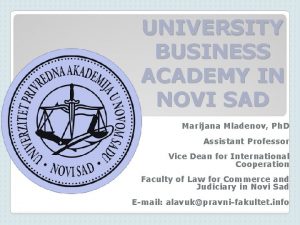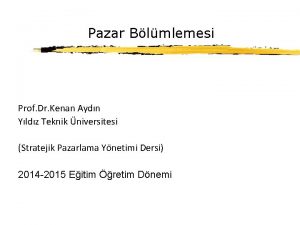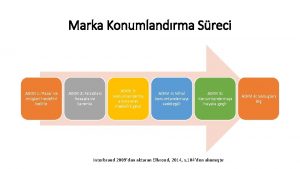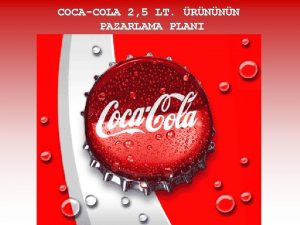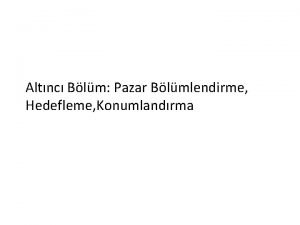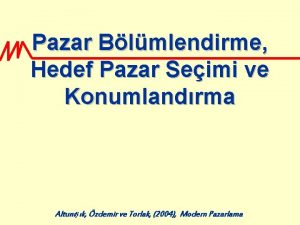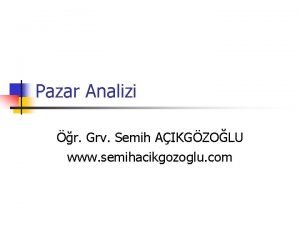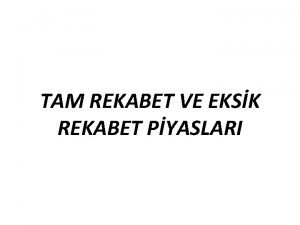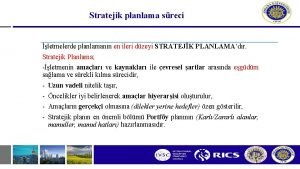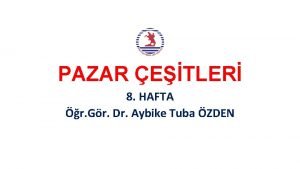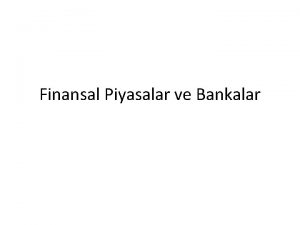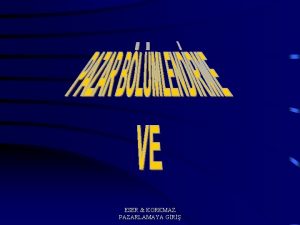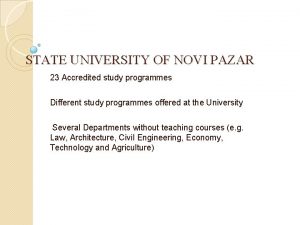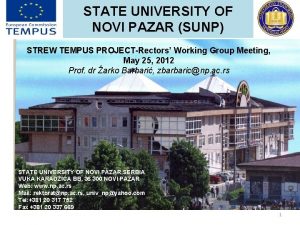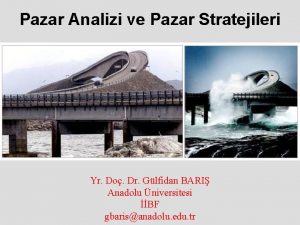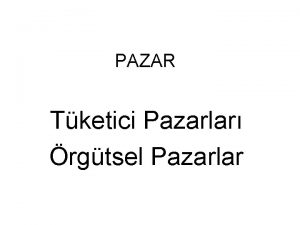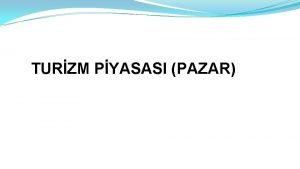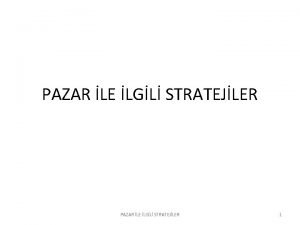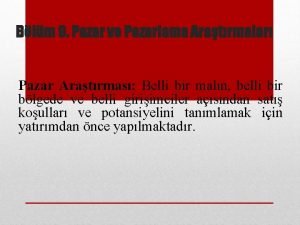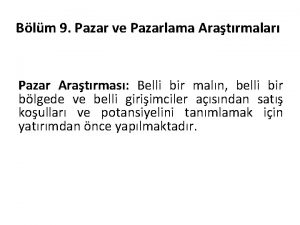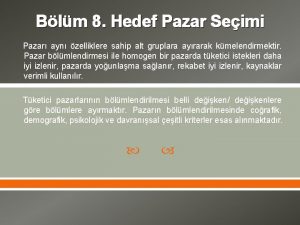STATE UNIVERSITY OF NOVI PAZAR http www np

















- Slides: 17

STATE UNIVERSITY OF NOVI PAZAR http: //www. np. ac. rs TEMPUS MASTS CONFERENCE June, 6 -7 Novi Sad

The State University of Novi Pazar v. The youngest state university in Serbia v. With app. 4000 Ss and 170 Ts v. The first accredited integrated state university v. All the programs, both their curricula and their teaching practice, are based on the Bologna standards

1. 2. 3. 4. 5. 6. 7. State University of Novi Pazar - 10 departments and 40 study programs Department of Law Department of Economics Department of Philology Department of Philosophy Department of Mathematics Department of Technical Sciences Department of Chemical-Technological Sciences 8. Department of Biomedical Sciences 9. Department of Art 10. Department of Multidisciplinary Sciences

5 Depts. with 11 TE GRADUATE PROGRAMS 4 Depts. with 10 TE MASTER PROGRAMS Dept. of Philology BA Serbian Language and Literature MA Serbian Language and Literature BA English Language and Literature MA English Language and Literature

5 Depts. with 11 TE GRADUATE PROGRAMS 4 Depts. with 10 TE MASTER PROGRAMS Dept. of Mathematics BA Mathematics MA Mathematics BA Mathematics and Physics MA Mathematics and Physics BA IT and Mathematics MA IT and Mathematics BA IT and Physics MA IT and MA Physics

5 Depts. with 11 TE GRADUATE PROGRAMS 4 Depts. with 10 TE MASTER PROGRAMS Dept. of Chemical -Technological Sciences BA Chemistry MA Chemistry BA Food Technology MA Food Technology

5 Depts. with 11 TE GRADUATE PROGRAMS 4 Depts. with 10 TE MASTER PROGRAMS Dept. of Biomedical Sciences BA Biology MA Biology BA Sport and Physical Education MA Sport and Physical Education

5 Depts. with 11 TE GRADUATE PROGRAMS 4 Depts. with 10 TE MASTER PROGRAMS Dept. of Arts BA Fine Arts

The structure of TE courses: Dept. of Philology Program Pedag. Psych. Method. Practicum BA Serb. LL + + ++ + + Didactics Ped. psych MA Serb LL BA Eng. LL MA Eng. LL + +

The structure of TE courses: Dept. of Mathematics Program Pedag. Psych. BA Math MA Math BA Math&Phys MA Math&Phys + + + + + BA IT & Math MA IT & Math BA IT & Phys Meth. Practicum Didactics Ped. psyc + ++ + +

The structure of TE courses: Dept. of Chemical. Technological Sciences Program Pedag. Psych. Method. Practicum BA Chemistry (+) (+) (+) MA Chemistry BA Food Technology MA Food Technology (+) (+) Didactics Ped. psych (+)

The structure of TE courses: Dept. of Biomedical Sciences Program Pedag. Psych. Method. Practicum BA Biology + + + + + MA Biology BA Sport and Physical Education MA Sport and Physical Education + Didactics Ped. psych

Example: English LL Year Term Course Comp/El No of class ECTS II III Pedagogy E 3+0 5 III V Meth of ELT 1 C 2+2 5 Ped. Psych. E 2+1 5 Meth. of ELT 2 C 1+2 4 Psych. of Inellig. E/E 2+1 5 Cognitive Processes, Lang. and Thought E/E 2+1 5 2+2 5 V IV VIII Cognitive Development E V IX Practicum E 6

Example Course Objectives Outcomes Pedagogy Knowledge of the basic pedagogical principles Methodology of English Language Teaching 1 Knowledge of various approaches, methods, techniques used in EFL classroom To recognize, understand, and apply the basic knowledge and principles of pedagogy To be able to use different approaches, methods and techniques in the classroom Pedagogical Psychology Knowledge of the fundamental issue of pedagogical psychology, its subject matter, methods and techniques of research, of psychology of learning and personality psychology and the inclusive education To know the basic elements of pedagogical psychology and to be able to use the knowledge in the educational context Methodology of English Language Teaching 2 Acquisition of the skills of teaching: the newest principles and practice of language teaching To get experienced with teaching through the relevant practice with lesson observing and discussion, lesson planning, feedback sessions, teaching material, teaching lessons, self-reflection and to establish criteria for their further professional development Knowledge of intelligence (different definitions and approaches to intelligences), and research in this field, and establishing the need of an interdisciplinary approach to this phenomenon To show the knowledge of the basic concepts of intelligence, its development and its relationship towards other concepts and phenomena in psychology and to be able to discuss different theories of intelligence Knowledge about symbolic and integrative processes, higher cognitive processes, creative thinking, and problem solving strategies To understand know about symbolic and integrative processes, higher cognitive processes, creative thinking, and problem solving strategies Knowledge about relevant cognitive theories, approaches to cognitive development, aspects of cognitive development, and different ways of To understand basic theories of cognitive development, and to be able to establish the framework of cognitive development research Psychology of Intelligence Cognitive Processes, Language and Thought Cognitive Development

Practicum Ss activities in groups of 3 -4 Lesson observation a book for keeping such records with the follow up discussions, e. g. a journal or a diary Team teaching with their peers a diary or a journal with lesson plans, self-observation and feedback Individual teaching a diary or a journal with lesson plans, self-observation and feedback Exam class with the mentor, teacher, peers with their reflection and discussion

Tell me and I forget. Show me and I remember. Involve me and I learn.

HVALA
 E student.np.ac.rs
E student.np.ac.rs University of novi pazar
University of novi pazar Pazar bölümlendirme ve hedef pazar seçimi
Pazar bölümlendirme ve hedef pazar seçimi Ugostiteljsko turisticka skola novi pazar
Ugostiteljsko turisticka skola novi pazar Marijana mladenov
Marijana mladenov Hedef pazar seçimi örnek olay
Hedef pazar seçimi örnek olay Heterojen pazar
Heterojen pazar Marka konumlandırma süreci
Marka konumlandırma süreci Coca cola pazarlama stratejisi
Coca cola pazarlama stratejisi Pazar bölümlendirme kriterleri
Pazar bölümlendirme kriterleri Pazar bölümlemenin faydaları
Pazar bölümlemenin faydaları Pazar çekiciliği göstergeleri
Pazar çekiciliği göstergeleri Ologopol
Ologopol Pazar çekiciliği göstergeleri
Pazar çekiciliği göstergeleri Endüstriyel pazarın özellikleri
Endüstriyel pazarın özellikleri Ikincil piyasalar nedir
Ikincil piyasalar nedir Jeodemografik
Jeodemografik Hedef pazar seçimi stratejileri nelerdir
Hedef pazar seçimi stratejileri nelerdir
